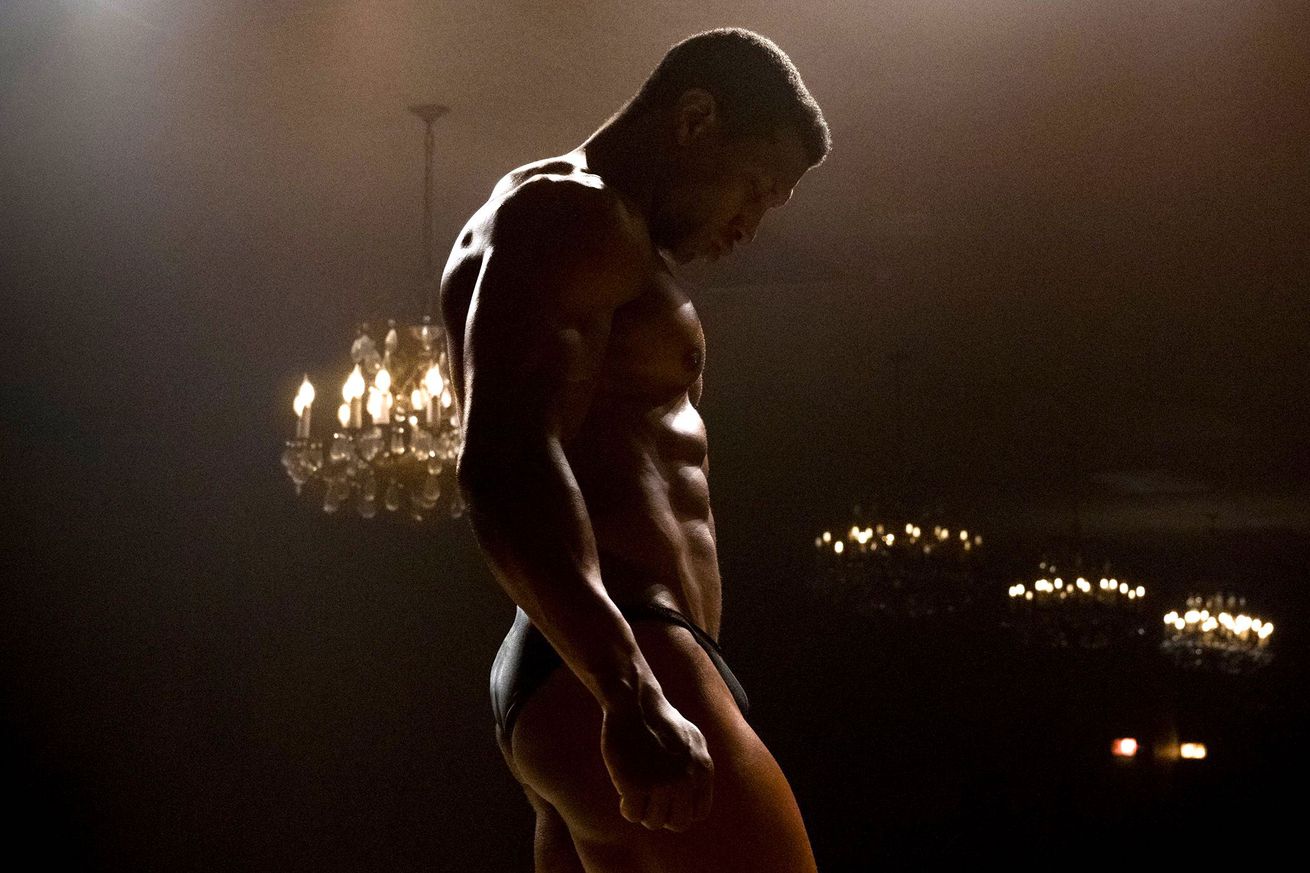
Jonathan Majors is a bodybuilder yearning to be truly seen in Magazine Dreams
When Jonathan Majors takes to the bodybuilding competition stage in writer / director Elijah Bynum’s arresting new drama Magazine Dreams, it’s impossible not to feel as if the movie’s in direct conversation with the way that its lead star’s fame has become wrapped up in the public’s fascination with his body. Magazine Dreams’ deep dive into the life of an obsessive, aspiring pro lifter longing for a shot at fitness fame is one of the most difficult pieces of cinema to debut at this year’s Sundance Film Festival. But as it’s breaking your heart and making you sweat, Magazine Dreams is also laying bare many painful truths about what it means to be trapped in a world where objectification and dehumanization are the prices you have to pay for a shot at stardom.
Magazine Dreams tells the story of Killian Maddox (Majors), a painfully shy grocery store clerk who lives in a small home on the outskirts of Los Angeles with his elderly grandfather William (Harrison Page) and spends his days fantasizing about what it would be like to grace the cover of periodicals like Men’s Fitness. When he isn’t pushing his body up to and past its breaking point in the gym, Killian’s inhaling thousands of calories to keep himself going or recording videos of himself posing in his garage before nervously uploading them to his YouTube page in hopes that people will notice him.
Magazine Dreams straddles the gap between drama and psychological thriller
It hurts Killian — who’s strongly implied to be somewhere on the spectrum throughout the movie — more than he can always put into words when people comment on his videos to make fun of how awkward and earnest he is. But none of that pain really matters to Killian when he’s alone in his small bedroom gazing at the dozens of posters of models like Brad Vanderhorn (Michael O’Hearn) that are lovingly and carefully plastered across every inch of his walls and ceiling. In Killian’s mind, the only people who could ever hope to understand his passion and dedication to fitness are other lifters like Brad, to whom he diligently and desperately writes multiple fan letters — even though he’s convinced that they all go unread. And to a certain extent, Killian’s proven right as Magazine Dreams digs into the difficulties he experiences while simply trying to exist out in the world.
Even though he’s often socially inept to the point of ruining relationships, Killian has a nuanced understanding of how people see him and project all sorts of ideas onto him because of his Blackness and his physique. But aside from grandpa and his co-worker Jessie (Haley Bennett), people seldom think about how Killian perceives them, and Magazine Dreams’ story delves into how that kind of existence can push people to the edge.
Along with being a character study that Majors fully throws himself into with a vigor, Magazine Dreams also straddles the gap between being a drama and a psychological thriller not unlike Taxi Driver and, interestingly, Eminem’s “Stan.” As Maddox, Majors vacillates between moments of gentle vulnerability and steroid-fueled rage that play right into strangers’ racist assumptions about his lack of intelligence — emotional or otherwise. But whenever Magazine Dreams is zeroing in on Killian in scenes meant to leave you deeply uncomfortable or nervous, the movie very clearly wants you thinking about what, specifically, about him sets off so many alarm bells.
Majors vacillates between moments of gentle vulnerability and steroid-fueled rage
There’s a nervous and electric sense of dread coursing all throughout Magazine Dreams that intensifies as the emotional peaks and valleys of Majors’ performance become increasingly extreme. The film intentionally blurs Killian’s experience of reality as different people come into his life to hurt or find sexual gratification in him. But there’s always a very distinct and exacting visual clarity when Magazine Dreams is focused on highlighting his body in a way that feels reflective of how people see him as something to be consumed rather than a person to be admired or respected.
The frantic, spiraling quality that dominates its final acts is part of Magazine Dreams’ story. It has the unfortunate side effect, though, of flattening characters like Taylour Paige’s Pink Coat and Sonny Valicenti’s James into late-coming members of a Greek chorus who spell out some of the movie’s core ideas that are already pretty evident. As it’s hurtling through multiple shocking emotional climaxes, you get the sense Magazine Dreams might be a more taught and singularly devastating film if it settled on one. But as a psychological crucible meant to hit you hard and leave you reeling, Magazine Dreams is beyond effective and something worth sitting with long after the credits are over.

